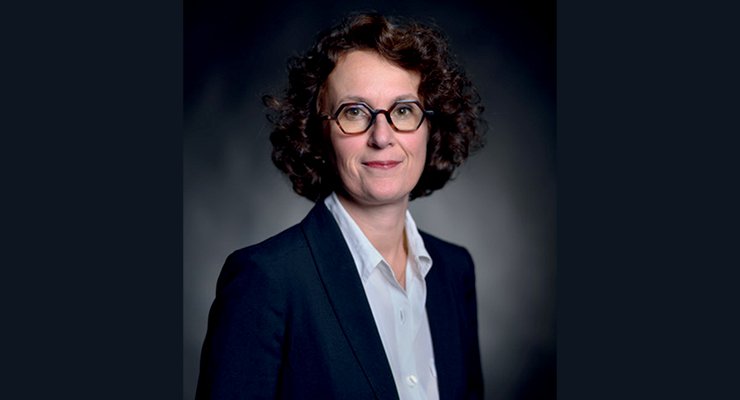Mechanical Engineering (IM)
Mechanical Engineering (UTC-IM) has been created through a merger of two existing UTC departments – GM (Mechanical Engineering) and GSM (Mechanical Systems Engineering), for the purpose of training general mechanical engineering science graduates to meet the needs of those industrial sectors who need such skills.
UTC-IM key figures
- 72 lecturer research scientists
- 28 technical and admin. support staff
- 1100 (approx.) students
- more than 300 engineers graduate per year
- nearly 8000 graduates
Description
Training will there are cover a wide range of sectorial activities running from automobile industries, to railroads, to naval architecture & construction, aerospace and aeronautics, biomechanical applications, energy engineering, material transformation, robotics, professional software editing, design and consultancy offices … UTC-IM graduates will adapt well to the above industrial fields, will be able to intervene through the product life-cycle and the various project phases, in R&DE, in pre-product design and prototyping, in development, industrialization, mass production, sales, recycling …
Engineers with degrees in mechanical engineering are, for example, capable of:
- to design and size robust and safe mechanical systems;
- to propose materials best suited to expected constraints and property specifications;
- to integrate vibro-acoustic analyses to mechanical designs;
- to implement quality assurance measurements and certification;
- to use digital engineering tools and software (CAD, PLM …)
- to supervise and control production system and direct manufacturing processes;
- to identify, choose and implement suitable mechatronic and/or innovative solutions
Training offer
The curriculum for students taking UTC-IM courses is organized with 4 semesters' course work and 2 semesters' industrial placements. A core programme of covering the scientific and technological fundamentals serves as the knowledge and skills basis.
Teaching covers 4 main domains corresponding to the skills available at the Department of Mechanical Engineering.
- Model and size a mechanical system;
- Implement design, industrialization and manufacturing processes;
- Manage the flow of information and energy for the control and performance of a mechanical system;
- Master the digital environment for mechanics.
Engineering training (FISE)
Initial training under student status (FISE) is organized into 2 semesters of study and a 6‑month internship at assistant engineer level. The engineering students then choose a sector among the 9 offered: 8 in mechanical engineering and 1 in management of innovative products. They again follow 2 semesters of study and an end-of-study internship at engineering level consistent with their choice of sector.
Work-study engineering training (FISA)
Initial training under apprentice status (FISA) alternates periods of 6 weeks at UTC and in a company. It gives access to 3 shared courses (AVI, DFI, PIL) and a specific design course (CPT).
Several labels are also available in addition to the specialty:
- the Aeronautics label,
- the Hydraulic-Mechatronics label,
- the Mathematical Modeling label,
- and the Sustainable Engineering label.
Research
The various course components are based largely on the skills and availability of the UTC Roberval Lab. (Mechanical engineering, Acoustics, Vibrations and Materials): UTC's Roberval laboratory is specialised in development of experimental and digital approaches to the analysis, modelling and design of innovative materials, structures and integrated mechanical systems, in electric actuators and motricity issues for on-board power systems, power electronics and control.
Partnerships and valorisation
The Mechanical Engineering Department has established rich relationships and partnerships in many cutting edge sectors:
- Automobile, railroad, aerospace: Renault Group, Stellantis, Arcelor Mittal, Valeo, Saint-Gobain, ALSTOM, Forvia, Plastic Omnium, SNCF, Michelin, …
- Mechanical, electrical equipment: General Electric, Hutchinson ; NTN, SKF, Poclain Hydraulics, Schneider Electrics, Bosch
- Agricultural machinery and public works: AGCO, Class, Kubota, John Deere, Kuhn, Liebherr
- Energy: EDF, ADEME, Orano, Framatome…
- Aeronautics, Defense and Space: Airbus, Safran, CNES, DGA, MBDA, Nexter System, Thales, Naval Group
- Luxury and cosmetics: Hermès, Chanel, L’Oreal, Louis Vuitton, Cartier Joaillerie, Guerlain, Christian Dior
- Consumer products and goods: Decathlon, Danone, Bel, Bonduelle, Savencia
- Software editing: ESI Group, DPS, Inetum, Dassault Systèmes, Planisware, Ansys, …
- Technical Centres and Research establishments: Cerema, Cetim, Ineris, Onera, CNRS, CEA
Research Projects (approved and funded by ANR, Industrilab, FUI …) contribute to development of these relationships and to valorise the research work, notably in the form of PhD theses conducted with industrial partnerships.
Internships and industrial relations
At the end of semesters 2 and 5, engineering students in the mechanical engineering department complete their training with two six-month internship periods, mainly in industry or in a university environment. An internship service provides access to a list of companies that have submitted projects.
Going abroad
Each graduate must validate an international skill. The majority obtain it thanks to:
- one semester of study at a partner university;
- a full year of study (6‑month training and 6‑month internship);
- or a double degree mainly with UNIFEI (Brazil) – option: Aeronautical mechanics, TU Braunschweig (Germany), University of Zaragoza (Spain), Cranfield University (United Kingdom), Politecnico di Torino (Italy), ETS Montreal (Canada)…
Contact and documentation
Mobilité sortante
Mobilité entrante













